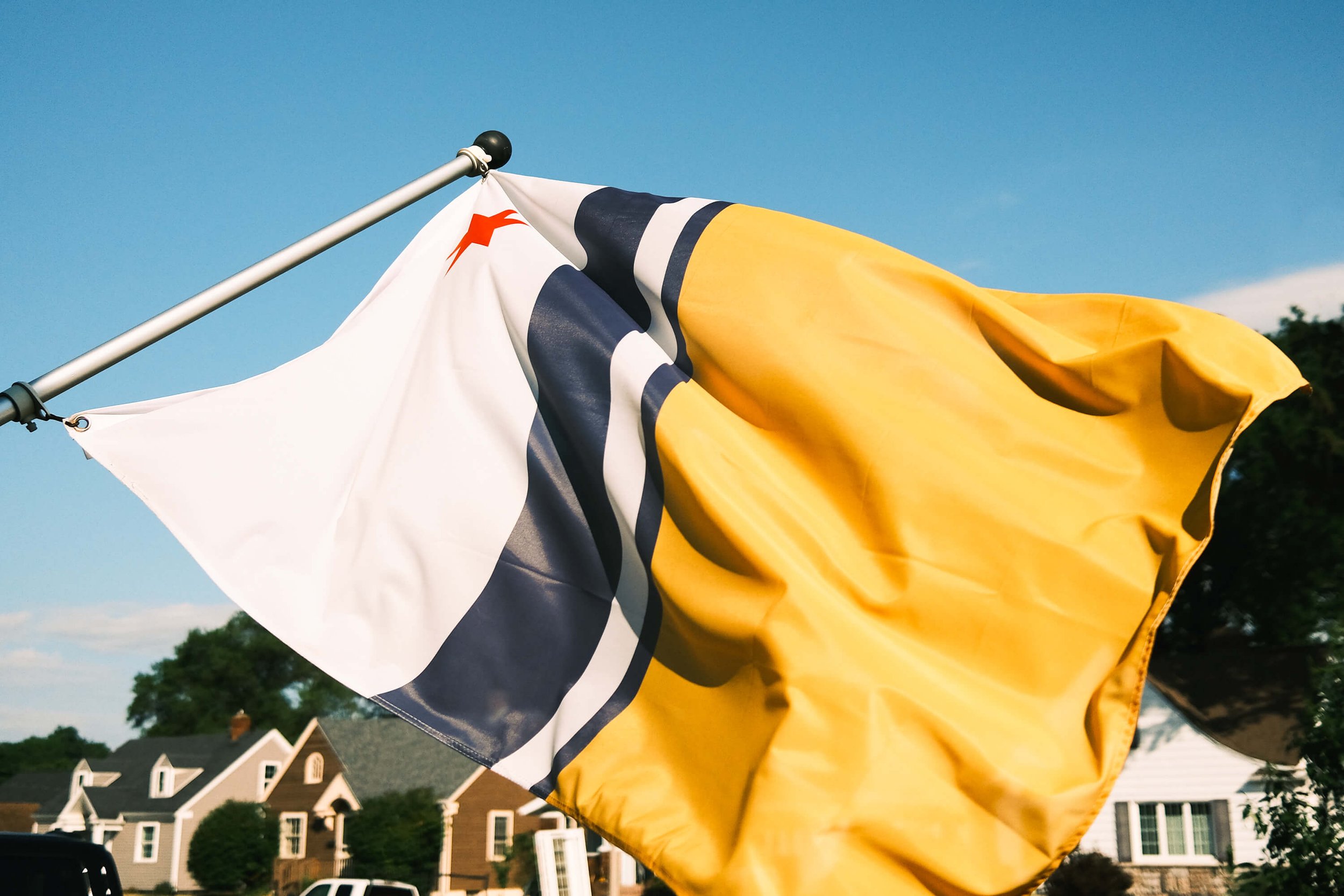Why I Fly the South Bend Flag
Last month, I realized it was time for my South Bend Flag to retire. Faded and worn, it was past its useful life. I went online and bought a new one. It reminded me that a few weeks earlier, someone on our neighborhood Facebook page had asked the group where to find the South Bend Flag. So, I posted the website where I found the flag at a reasonable price—a few people thanked me, and that was that. My new flag came, and it looks great.
A few days later, someone from the group messaged me on Facebook. The person – I believe in good faith – asked how it was that I could be proud enough of South Bend to fly our flag when there are so many bad things about South Bend. She referenced a recent spat of depressing shootings, the city’s poverty rate, poor school performance, and hollowed-out neighborhoods.
Somewhat offended at the unrequested attack, I didn’t respond right away. Part of me was angry simply because she wasn’t wrong, per se. South Bend does have significant issues. Our population has shrunk, there is a problem with shootings, and schools are struggling to fill seats in the classroom, to name a few.
To me, those issues are part of a systemic story in America about how cities – specifically Rust Belt cities – are set up to fail by far larger forces than the hundred thousand people who call South Bend home. But that isn’t a response to her inquiry. Why do I fly South Bend’s flag – or generally have pride in South Bend – when these issues are so prominent? Just because I believe I know the systemic causes of these issues doesn’t mean they don’t exist. I certainly don’t have pride in poverty or crime.
But there is danger in expecting perfection before having pride or love for a community. We do not expect our families to be perfect before we love them—and if we wait for a perfect romantic partner, we will be waiting forever. People fall in love with imperfect souls every day.
Aaron Renn recently wrote an article titled “This is Your Country.” It touches on much larger (and controversial) themes than I am attempting to here but one quote stood out to me as I was thinking of a response to my neighbor’s message: “We identify with and love our country for the same reason we love our children – because it is ours. Doing so requires no defense or justification beyond that.”
Do we shy away from the parent who loves a misbehaving child? No. South Bend is home. It is okay to love it for that alone. It is okay to have pride in it because it is simply yours and mine. We can only address any of the issues my neighbor asked about by first caring about them and South Bend.
If you don’t care about the children in this community, why would you care about the quality of the local schools? If you don’t love your neighbors, why would it matter if they were in poverty? Loving a place does not mean ignoring its sins, it means giving a damn enough to acknowledge them.
America is such a big and populous place, it can be hard for me to relate to it. Over three hundred and thirty million very different people live in America, spanning vast distances, cultures, and climates. It’s daunting to wrap your mind around and can lead to a personal distance between myself and America. The sheer vastness of it becomes impersonal.
But South Bend is a city of a little over a hundred thousand and a little over forty square miles. It, too, is diverse both racially and culturally, with dozens of different cultures and subcultures coexisting in this city on the banks of the St. Joe River. But it's relatable and human-scaled. You can, on any given day, meet anyone who lives here. You could walk every single neighborhood in a few months. You can know the owner of the diner where you get breakfast once a week. Spending an afternoon picking up trash at the neighborhood park makes a noticeable, if small, difference. Small is accessible.
That accessibility makes it easier for me to have pride and love. But accessibility is a double edged sword. When you see in the news that another life was lost to senseless gun violence, chances are you either knew the person directly, or, at least, know someone who knew them. When reports surface that more schools might close, you worry that your child’s school will be next—their life uprooted due to the slow decline of their hometown.
Small is accessible. And accessibility dares you to care. I understand why someone may ask why I fly the South Bend flag. I get it. I do. South Bend is a complicated place, and I cannot live consciously in this city without facing the good and the bad.
Yet, South Bend has also been kind to me. I had a good childhood here, and my children are enjoying a good life here. I have made good friends here. South Bend is my home, and therefore it is mine. That is true for every single person who lives here. That means this community is worth fighting for—and the first step in that fight is to love it.
South Bend is yours, and South Bend is mine. That’s why I fly our flag.


